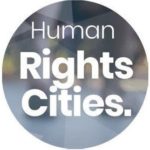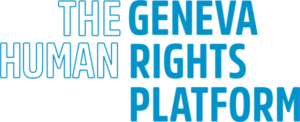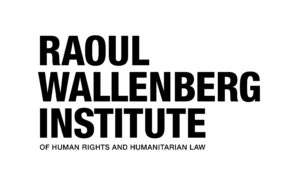Cities as critical actors in the national & international human rights systems
- Viewed - 2685
Description
On 12 October 2021, the Geneva Cities Hub and the Geneva Human Rights Platform (GHRP) organized a Geneva Urban Debate and thematic session of the 2021 GHRP Annual Conference on “Cities as critical actors of the national and international human rights system”. UN-Habitat, the Human Rights Cities Network and the Raoul Wallenberg Institute of Human Rights and Humanitarian Law were partners to the event.
The objective was to discuss the connectivity between cities, as national human rights actors, and Geneva-based international human rights mechanisms. For that purpose, it gathered speakers from the cities of Geneva, Montevideo, York and Pittsburgh, and human rights experts.
When talking about national human rights actors, cities, local and regional authorities do not frequently come to mind as domestic actors with human rights responsibilities. Yet, as the pandemic has clearly highlighted, they do address human rights concerns because of their key role in public service planning, delivery and monitoring and of their proximity to their residents.
Both Sami Kanaan (Vice Mayor of Geneva) and Silvana Pissano (Mayor of Montevideo, Municipio B) shared the human rights commitment of their respective cities and some of the projects to realize them at local level. For instance, both mentioned the specific and additional support provided to the most vulnerable ones during the pandemic, including food distribution, social housing, access to toilets and showers. As affirmed by Sami Kanaan, “human rights can only become a reality if they are implemented at local level and have an impact on the daily lives of our inhabitants”.
The city of York, UK, relies on an annual human rights indicator report to review where it stands in relation to the five priority rights chosen through a public consultation exercise – education, housing, health, decent standard of living, and equality and non-discrimination. Stephen Pittam, Chair of the York Human Rights City Network, mentioned how these reports had helped to engage the local population and establish facts and trends eventually leading to policy changes. That has for instance been the case for education where the number of young people not in education, employment or training has reduced over the years. Importantly, all political parties in York support the city’s human rights institutional architecture (the Human Rights and Equalities Board) thereby recalling that human rights transcend political divisions.
The city of Pittsburgh, USA, has adopted the Convention on the Elimination of All Forms of Discrimination against Women through a city council ordinance in 2016, thanks to the mobilization of people at local level. As a result, a Gender Equity Commission was established, enabling a more focused discussion at city level on both gender and racial discrimination against women and girls. Civil society in Pittsburgh also participated in the UPR Cities “3 Cs” campaign during the recent Universal Periodic Review of the USA (Nov. 2020). Pittsburgh activists consulted with residents, compiled a local UPR stakeholder report, and are now using the UPR reports to “clamor” for their rights. Noting local activists’ motto that “human rights don’t trickle down, they rise up,” Jackie Smith, Co-coordinator of the Pittsburgh Human Rights City Alliance, pointed out how the international community can help reinforce local human rights advocacy by pressuring national officials and helping empower both municipal authorities and civil society.
Leilani Farha, former UN Special Rapporteur on the right to adequate housing, recalled that international human rights law obligations clearly extended to local and regional authorities. However, most often, these authorities are not aware of their obligations, they lack the capacity and resources to implement them and there is lack of clarity about who is responsible for what. Despite those challenges, cities have taken great initiatives to address human right concerns. That has been the case in Canada, where city leaders have formed the right to home municipal working group to tackle homelessness which has intensified since the onset of Covid-19.
Cities interested in becoming “human rights cities” can find a wealth of information and share experiences through the Human Rights Cities Network which was established in 2018. During her intervention, Barbara Oomen, Board member, Human Rights Network, mentioned the recent launch of the EU Fundamental Rights Agency human rights cities framework which will hopefully help to reinforce human rights locally.
The role of local and regional governments in relation to human rights will continue to be discussed at the international level, including as a follow-up to the resolution spearheaded by the Republic of Korea and other States at the UN Human Rights Council. The Council should again be seized with this issue during its 51st session in October 2022.
About the event
When talking about National Human Rights Systems, one rarely thinks about cities or local authorities as domestic actors who have a key role in the implementation of international human rights law. Yet, they clearly do address human rights concerns because of their key role in public service delivery and of their proximity to their residents.
The human rights engagement of cities is not new. It dates back to the late 1990s, when several cities started to explicitly refer to international human rights law in their municipal policies, eventually even calling themselves “human rights cities”. Today, many cities have followed the trend and have committed to human rights. What lessons can be drawn from these experiences at national level? To what extent have these cities relied on international human rights law as a framework to guide their urban policies? How have they cooperated with other national human rights actors, in particular State institutions?
At the international level, cities or local authorities have to date remained at a certain distance from the UN human rights system, which is firmly based on the premise of State sovereignty. Several non-State actors, such as NGOs, NHRIs, academia, have however made their way into the system and are now major contributors to its functioning. Given the role of cities in the implementation of human rights at local level, better including them in the international system certainly brings added value. It is not about the dilution of States’ primary responsibility to respect, protect and fulfil human rights on their territory. Rather, it is about recognizing that local authorities have a complementary role to play and shared responsibilities when it comes to making human rights real on the ground. So, how can cities strengthen their links with the international human rights system? And how can international human rights debates and decisions better trickle down to the local level?
Key questions to be addressed during the event:
- What lessons can be drawn from cities which have committed to human rights, in terms of concrete added value for urban dwellers (enhanced public services, inclusive municipal governance, authorities’ accountability, etc.)?
- What connections have human rights cities developed with the international human rights framework and system?
- To what extent do human rights cities cooperate with national actors, incl. the State’s institutions on human rights issues?
- How can the international human rights system better integrate local authorities? Pros and cons and for what impact on the ground?
The event is part of the 2021 Annual Conference of the Geneva Human Rights Platform
Partners and resources




